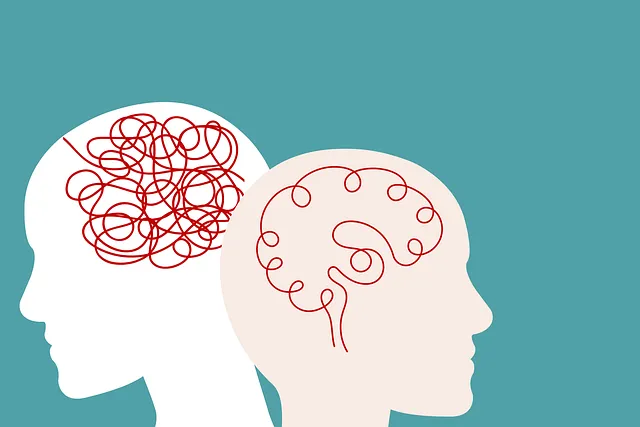Mental health advocacy groups like Littleton Kaiser Mental Health Programs play a key role in community well-being through awareness campaigns, support groups and educational initiatives that tackle stress, self-esteem and stigma. Their holistic approach, targeting diverse demographics, destigmatizes mental illness and encourages help-seeking behaviors. By combining early intervention, structured stress reduction methods and regular risk assessments, these programs foster resilience and supportive communities. Evaluating their impact is crucial for continuous improvement in mental health advocacy.
Mental health advocacy initiatives are vital in fostering supportive communities and increasing awareness. This article explores these efforts, focusing on the innovative work done by Littleton Kaiser Mental Health Programs. We delve into their initiatives, offering a comprehensive guide to understanding and empowering mental health advocacy. From strategies for effective community engagement to measuring impact, this piece highlights practical approaches that drive positive change. Discover how these programs revolutionize mental healthcare accessibility.
- Understanding Mental Health Advocacy: The Need for Support and Awareness
- Littleton Kaiser Mental Health Programs: A Closer Look at Their Initiatives
- Strategies for Effective Mental Health Advocacy: Empowering Communities
- Measuring Impact: Evaluating the Success of Mental Health Advocacy Initiatives
Understanding Mental Health Advocacy: The Need for Support and Awareness

Mental Health advocacy initiatives play a pivotal role in fostering mental wellness within communities. They serve as a powerful tool to raise awareness about various mental health concerns, dispel myths, and promote understanding. Organizations like Littleton Kaiser Mental Health Programs have been at the forefront of these efforts, offering programs tailored to address specific needs such as stress management workshops designed to equip individuals with coping mechanisms for daily challenges.
By focusing on initiatives that enhance self-esteem improvement, these organizations contribute significantly to building resilient communities. Through support groups, educational campaigns, and awareness events, mental health advocates create safe spaces where individuals can share their experiences, learn from one another, and seek help without stigma. This collective effort is crucial in ensuring that no one suffers in silence and that everyone has access to the resources needed for optimal mental wellness.
Littleton Kaiser Mental Health Programs: A Closer Look at Their Initiatives

The Littleton Kaiser Mental Health Programs stand as beacon of hope and support for individuals navigating mental health challenges. Their multifaceted approach to advocacy initiatives underscores a commitment to holistic well-being, touching upon areas such as public awareness campaigns, community outreach program implementation, and social skills training. Through these programs, they foster an environment where open conversations about mental health thrive, breaking down barriers and promoting understanding.
Littleton Kaiser’s strategic interventions target diverse demographics, from adolescents to adults, offering tailored support that addresses unique psychological needs. The integration of public awareness campaigns plays a pivotal role in destigmatizing mental illness while empowering individuals to seek help without fear of judgment. Community outreach program implementation ensures that services reach underserved populations, fostering inclusive access to care. Additionally, social skills training equips participants with valuable tools for effective communication and building supportive relationships, crucial components in long-term recovery and community reintegration.
Strategies for Effective Mental Health Advocacy: Empowering Communities

Empowering communities through mental health advocacy is a multifaceted approach that leverages strategies tailored to suit diverse needs. Initiatives like Littleton Kaiser’s mental health programs exemplify this, focusing on early intervention and prevention methods. By integrating Mental Wellness Journaling Exercise Guidance into community settings, residents gain tools to monitor and manage their emotional well-being proactively. This not only fosters self-awareness but also strengthens resilience against stress and potential mental health crises.
Furthermore, communities can benefit from structured Stress Reduction Methods, such as mindfulness workshops and group therapy sessions. These programs aim to equip individuals with coping mechanisms for everyday stressors, thereby reducing the risk of exacerbating existing mental health conditions or precipitating new ones. For professionals working in this field, it’s crucial to conduct regular Risk Assessment to ensure a safe and supportive environment. By combining these strategies, communities can create a network of support that promotes mental wellness and enhances the overall quality of life for all members.
Measuring Impact: Evaluating the Success of Mental Health Advocacy Initiatives

Evaluating the success of mental health advocacy initiatives is a crucial step in understanding their impact and identifying areas for improvement. Organizations like Littleton Kaiser Mental Health Programs have implemented various programs, including Social Skills Training, to address different aspects of mental well-being. By measuring outcomes, these initiatives can gauge whether they are effectively reducing symptoms of anxiety, promoting self-care routines, and fostering healthier social interactions.
Through rigorous evaluation methods, organizations gain valuable insights into what works best for different demographics. This data-driven approach allows them to refine their strategies, ensuring that resources are allocated efficiently. For instance, tracking participant progress in areas like Anxiety Relief and Self-Care Routine Development can highlight the most successful programs, enabling advocacy groups to focus on scalable solutions and make informed decisions to better serve their communities.
Mental health advocacy initiatives, such as those offered by the Littleton Kaiser Mental Health Programs, play a pivotal role in fostering supportive communities. By combining increased awareness with practical strategies, these efforts empower individuals and families affected by mental health challenges. Through evaluating their impact, we can refine and expand successful programs, ultimately enhancing the well-being of our society. The path forward lies in continued collaboration and innovation within the realm of mental health advocacy.






